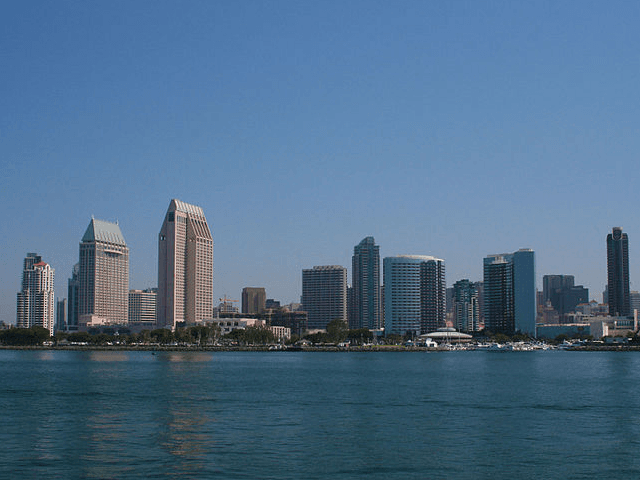Following an effort by Governor Jerry Brown’s union-stacked Public Employment Relations Board (PERB) to nullify its 66 percent voter-approved public pension restructure, the San Diego City Council voted unanimously to appeal the PERB’s ruling to the courts.
Facing impending municipal bankruptcy due to a $2.3 billion unfunded pension liability, San Diego City voters passed Proposition B by a two-thirds vote on June 5, 2012. The initiative amended the city charter to replace defined benefit pensions for all newly-hired city employees, except sworn police officers, with a 401-K type defined contribution plan that most private sector workers have.
Prop B is estimated to have provided fiscal year savings to the City of San Diego of $8.3 million in the 2013/2014 fiscal year, $141 million through 2018, and nearly $1.6 billion through 2040.
The city’s near-death experience was caused by a 2002 union-led decision by the 13-member board of the San Diego City Employees’ Retirement System to spike pension benefits for city employees. The vote and subsequent City Council rubber stamp gave the five union members of the pension board an average of $25,000 a year in extra retirement cash.
Even though the 5 union board members were eventually indicted for “secreting” the $1.4 billion cost, California’s wildly pro-union laws prohibits reversing even a crooked pension spike. That is why Prop B only impacted the city’s 2,000 hires since 2012.
Although government unions scream about the evils of income inequality, public employees across the nation traditionally have received total compensation packages 25 to 46 percent higher than private employees with comparable skills and experience. Although the salaries of public employees are usually comparable to those of private sector employees, the health care and pension benefits received by public employees are far costlier than those provided to private employees.
But new U.S. Census Bureau data from California reveal that from 2010-2014 there has been a widening gap in wages favoring full-time local public-sector workers over their private sector counterparts. As the average median private sector worker in California suffered an inflation-adjusted 3.59 percent decline in median wages, local public sector wages increased 0.87 percen.
The unions complained that no one would apply for a job at the City of San Diego if voters passed Prop B. But last year, about 800 applicants applied for 40 new fireman positions.
Despite the wishes of voters and the lucrative nature of public sector employment, the powerful PERB voted on December 29 that the city initiative did not “meet and confer” with the unions before the vote. Proposition B was nullified and city employees must be compensated for lost pension benefits, plus 7 percent annual interest, and the city must pay union legal fees for “pursuing complete relief in the courts.”
The PERB said its decision was made in the absence of “appellate authority” to determine that bargaining is preempted by a citizens’ initiative. The city was invited to “seek redress in the courts” if it believes constitutional rights are violated.
Now the appeals court that allowed the labor board’shearing on the bargaining issue is being asked by the city to overturn the board’s decision. The board concluded that the mayor at the time was as an agent of the city when he led the initiative drive.
It is expected that the City of San Diego’s legal appeal of the PERB‘s decision could take 18 months. The PERB had no comment on the appeal.

COMMENTS
Please let us know if you're having issues with commenting.